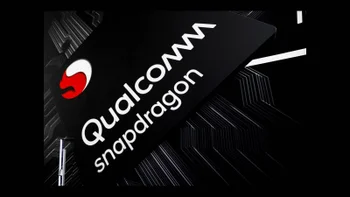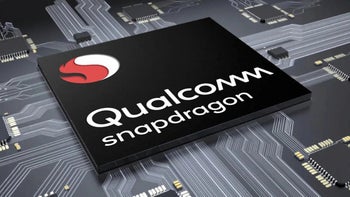Qualcomm might split 3nm Snapdragon 8 Gen 4 production between TSMC and Samsung

Qualcomm's current high-end chipset, the Snapdragon 8 Gen 2, is manufactured by TSMC using its 4nm process node. In the past. Qualcomm has had its flagship application processor built in some years by TSMC and by Samsung Foundry in other years. For example, the Snapdragon 855 and 865 were built by TSMC using its 7nm and enhanced 7nm nodes respectively. The Snapdragon 888 SoC and the Snapdragon 8 Gen 1 were produced by Samsung Foundry.
But last year Qualcomm, seeking to increase the performance of the Snapdragon 8+ Gen 1, turned production of the 4nm chip over to TSMC. This also occurred at the same time it was discovered that Samsung Foundry's yields on its 4nm production was a paltry 35%. This means that at the time, 65% of the die produced on a 300mm wafer did not pass quality control. As a result, Qualcomm decided to turn manufacturing of the Snapdragon 8+ Gen 1 AP over to TSMC.
Samsung has reportedly doubled its 4nm yield from 35% to 70% nearly matching TSMC
Even though Samsung has reportedly improved its 4nm yield to 70%, the Snapdragon 8 Gen 2 chipsets (including the "for Galaxy" variant) are built by TSMC. According to tipster Revegnus (via Wccftech), Qualcomm is considering a dual-sourcing strategy for future high-end chipsets. This plan would start with the Snapdragon 8 Gen 4 for 2025 with TSMC building the regular version of the SoC using its enhanced N3E 3nm process node. The Snapdragon 8 Gen 4 for Galaxy, earmarked for the flagship Galaxy S25 line, would be made by Samsung Foundry using its 3nm process node.

Qualcomm might go to dual-sourcing for 2025's Snapdragon 8 Gen 4 chipset
Last year, it appeared that Samsung would be producing the overclocked Samsung Galaxy 8 Gen 2 for Galaxy SoC but this plan, similar to what Revegnus says could be in the works for 2025, did not happen. As we already pointed out, TSMC is the foundry making both Snapdragon 8 Gen 2 variants. But things do get a bit dicier at 3nm as TSMC continues to use its FinFET transistors for 3nm while Samsung uses Gate All Around (GAA) for its 3nm production.
The Snapdragon 8 Gen 4 for Galaxy chip could outperform the regular version thanks to GAA
Since GAA surrounds the channel on all four sides, it reduces current leaks, increases the drive current, offers more precise control over current flow and chips using GAA typically have faster performance consuming less energy. TSMC plans on moving to GAA from FinFET with its 2nm process node. The bottom line is that the Snapdragon 8 Gen 4 for Galaxy chipsets, if made by Samsung Foundry, could outperform the regular version of the chip made by TSMC for reasons other than overclocking the high-performance core.
Using both TSMC and Samsung Foundry to make both variants of the Snapdragon 8 Gen 4 would be a cost-cutting move for Qualcomm. The upcoming Snapdragon 8 Gen 3 will be made by TSMC using its N4P process node. Only Apple among major phone manufacturers seems willing to spend the $20,000 per wafer price for 3nm production this year which is why the iPhone 15 Pro and iPhone 15 Ultra could be the only handsets powered by 3nm silicon later this year.
But next year could see a decline in wafer prices for 3nm production which would allow Qualcomm to use the cutting-edge node for both Qualcomm 8 Gen 4 versions regardless if they are coming from TSMC or Samsung Foundry or both.
A recent report says that TSMC will be ready to mass produce 2nm chips by 2025. The same year, Samsung Foundry is also supposed to start production of 2nm silicon in 2025 moving to 1.4nm by 2027. Since transistor counts continue to move up with every new process node, the main issue is making transistors small enough so that more of them can fit inside chips. There are 16 billion chips inside the Snapdragon 8 Gen 2 versus 10.3 billion in the Snapdragon 888 introduced in late 2020 and used on phone in 2021.













Things that are NOT allowed: